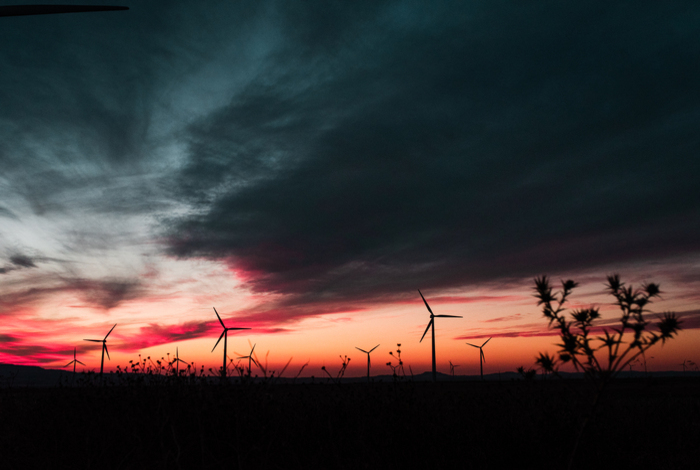Setting the Stage
From the 10th- 21st of November 2025, the world’s eyes will turn to Belém, Brazil, where the 30th UN Climate Change Conference (COP30) will convene. This year’s summit is being billed as the “Nature COP”[i], not only because of its Amazonian setting but also because forests, biodiversity, and land use are expected to take centre stage. COP30 will also be the first conference to return to Brazil since the inaugural Rio Earth Summit in 1992, which led to the establishment of the United Nations Framework Convention on Climate Change.
The event comes at a critical juncture. The latest science shows global temperatures have already exceeded 1.5°C above pre-industrial levels over a calendar year. Meanwhile, extreme weather events, geopolitical tensions, and uneven economic recovery are testing the resilience of global cooperation. Against this backdrop, negotiators will be tasked with turning lofty pledges into tangible action. Host nation Brazil has set out three main goals for COP30, these are reinforcing multilateralism and cooperation, connecting climate change to individuals and the economy, and accelerating implementation.
Key Areas of Discussion
Ahead of next week’s event, ZCA have pulled together five key topics and areas of discussion:
1. Nationally Determined Contributions (NDCs)
Countries must submit updated climate plans every five years and 2025 is a pivotal deadline: governments are expected to table new or revised NDCs that raise ambition for 2030 and beyond. Brazil, as host, has signalled it will present a stronger NDC to encourage others to follow suit. However as of 4th November, just 65 of the 190+ nations taking part in talks had published an updated Nationally Determined Contribution[ii]. The EU was one of those delayed in submitting an NDC, finally agreeing targets yesterday (6th November) for a ranged NDC of 66.25-72.5% by 2035. The EU also agreed to a 90% by 2040 climate commitment, however within this there is a weakening in climate commitment. The bloc is now set to allow the use of carbon offsets from other countries to cover 5% of its 2040 climate target, up from the previously agreed 3%.
2. Implementation and Accountability
After years of promises, the focus is shifting to delivery. COP30 will revisit commitments from the Global Stocktake at COP28, including the pledge to triple renewable energy capacity by 2030 and to transition away from fossil fuels. Expect heated debates on accountability mechanisms: how to track progress, penalise backsliding, and ensure transparency.
3. Climate Finance
Developing nations will push for clarity on the new collective quantified goal (NCQG) for climate finance, which is meant to replace the unmet $100 billion annual pledge. Current finance flows remain far below needs, where COP29 pledged $300bn annually by 2035, but estimates suggest $1.3–7.5 trillion is required. Discussions will likely cover adaptation finance, debt relief, and innovative mechanisms such as carbon markets.
4. Nature, Forests, and Indigenous Rights
With the Amazon as backdrop, forests and biodiversity will be impossible to ignore. Brazil has framed COP30 as an opportunity to link climate, nature, and people, highlighting the role of Indigenous communities as stewards of ecosystems. Not only has Brazil announced the launch of a new forest protection fund at COP30’s opening sessions, the event is also expected to play host to the largest ever indigenous contingency with more than 3,000 delegates. Expect announcements on forest protection coalitions, deforestation targets, and nature-based solutions.
5. Adaptation and Loss & Damage
The operationalisation of the Loss and Damage Fund, agreed at COP27, remains a live issue. Vulnerable nations will demand clarity on funding sources, governance, and disbursement. Further, adaptation (which has been long overshadowed by mitigation) will feature prominently, with calls for scaling up investment in resilience, early warning systems, and climate-proof infrastructure. For context, the UN highlights a $310bn annual adaptation finance gap by 2035[iii].
Why COP30 Matters
COP30 is more than another annual summit. It marks three decades since the first COP in 1995 and is a return to Brazil, the birthplace of the UN climate process at the 1992 Rio Earth Summit. Symbolically and substantively, it is a chance to reset global ambition.
If leaders can harness the Amazon’s symbolism and deliver concrete progress on finance, forests, and fossil fuel phase-down, COP30 could be remembered as a turning point. If not, it risks being another missed opportunity in a narrowing window for action.
References
[i] COP30: The 2025 United Nations Climate Change Conference - House of Commons Library
[ii] Ahead of COP 30, UNFCCC Publishes Synthesis of 64 NDCs – SDG Knowledge Hub
[iii] Adaptation Gap Report 2025 | UNEP - UN Environment Programme



.jpg)

